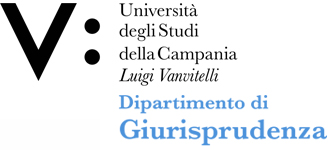Stefania GIOVA
Insegnamento di LE GARANZIE DEL CREDITO NEI MERCATI FINANZIARI
Corso di laurea magistrale in ECONOMIA, FINANZA E MERCATI
SSD: IUS/01
CFU: 8,00
ORE PER UNITÀ DIDATTICA: 56,00
Periodo di Erogazione: Secondo Semestre
Italiano
| Lingua di insegnamento | Italiano |
| Contenuti | Il corso affronta, con taglio specialistico, tematiche afferenti al Diritto privato con particolare attenzione alle garanzie del credito. |
| Testi di riferimento | P. PERLINGIERI, Manuale di Diritto Civile, Napoli, ESI, ult. ed., pp. 387-423; pp. 800-817; |
| Obiettivi formativi | Considerati gli Obiettivi del Corso di Laurea magistrale in Economia Finanza e Mercati l’insegnamento di Le garanzie del credito nei mercati finanziari ha, tra le finalità, quella principale di fornire una competenza giuridica specialistica al futuro studente laureato, al fine di ampliare la sua conoscenza interdisciplinare in considerazione dei principali sbocchi professionali del corso di laurea magistrale e delle loro diverse peculiarità. |
| Prerequisiti | Nessuno |
| Metodologie didattiche | Il corso si svolgerà attraverso 56 ore di didattica frontale. Ciascuna lezione ha una durata di 2 ore, sarà svolta anche con l’ausilio di strumenti informatici e potrà essere integrate da esercitazioni individuali o di gruppo su argomenti di particolare interesse per i discenti. |
| Metodi di valutazione | Ciascuno studente al fine di superare l’esame - che verterà sugli argomenti indicati - ed ottenere il riconoscimento di 8 CFU previsti dal piano di studi, dovrà sostenere una prova orale valutata in trentesimi nelle sedute d’esame previste. |
| Altre informazioni | Durante il corso potrà essere fornito ulteriore materiale didattico (Slides, sentenze, saggi, contributi della dottrina) anche al fine di preparare gli studenti agli eventuali seminari di approfondimento che verranno organizzati. |
| Programma del corso | La garanzia patrimoniale: caratteri e funzione; |
English
| Teaching language | Italian |
| Contents | The course addresses, with a specialist approach, issues relating to private law with particular attention to credit guarantees. |
| Textbook and course materials | P. Perlingieri, Manuale di Diritto Civile, Naples, ESI, last ed., pp. 387-423; pp. 800-817; |
| Course objectives | Considering the Objectives of the Master's Degree Course in Economics, Finance and Markets, the teaching of Credit guarantees in financial markets has, among the aims, the main one of providing specialized legal competence to the future graduate student, in order to broaden his knowledge interdisciplinary in consideration of the main professional opportunities of the master's degree course and their different peculiarities. |
| Prerequisites | Nothing |
| Teaching methods | The course will take place through 56 hours of frontal teaching. Each lesson has a duration of 2 hours, will also be carried out with the aid of IT tools and can be supplemented by individual or group exercises on topics of particular interest to the learners. |
| Evaluation methods | In order to pass the exam - which will focus on the indicated topics - and obtain the recognition of 8 credits foreseen in the study plan, each student will have to take an oral test evaluated out of thirty in the scheduled exam sessions. |
| Other information | Additional didactic material (slides, sentences, essays, doctrinal contributions) may be provided during the course, also in order to prepare students for any in-depth seminars that will be organised. |
| Course Syllabus | The patrimonial guarantee: characteristics and function; |








